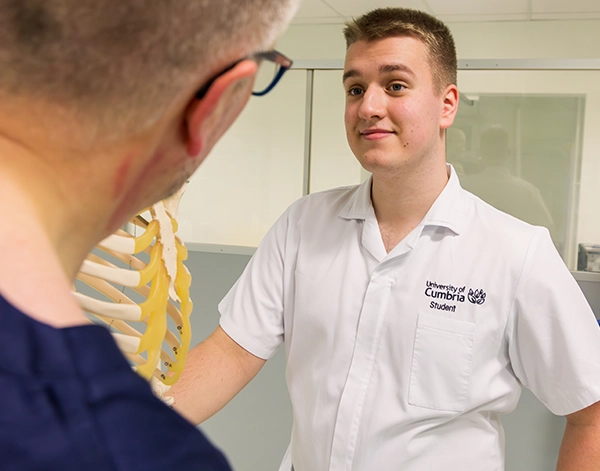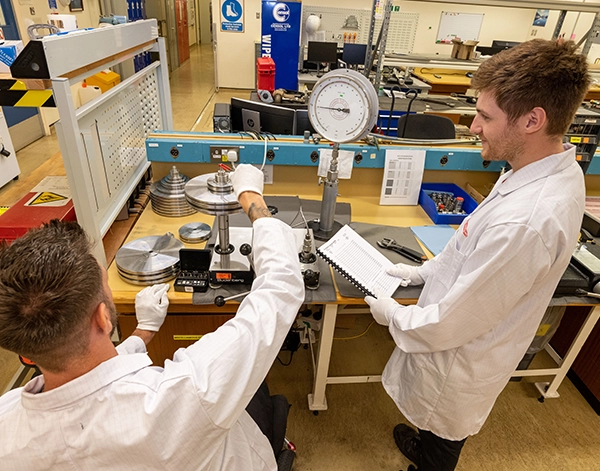Creative Digital Design Professional Degree Apprenticeship
This course is subject to validation.
What does this mean?
The Creative Digital Design Degree is designed to equip apprentices with the essential skills and knowledge needed to excel in the dynamic digital industry. The programme combines theory with practical application, allowing apprentices to gain hands-on experience while exploring key concepts in digital development, problem-solving, and workplace integration. Throughout the course, apprentices will develop their digital literacy and professional competencies, with a focus on applying what they learn in real-world contexts. By integrating industry standards and practical projects, the course prepares graduates for careers in CDD, ensuring they have the expertise and adaptability required to succeed in diverse professional environments.

This apprenticeship equips apprentices with critical thinking, problem-solving, and communication skills, all while boosting their digital literacy. Apprentices will apply what they learn directly in the workplace, developing the full range of CDD professional competencies.
Modules at Level 4 are designed to provide a baseline of digital literacy, visual design, and creative skills, and to introduce apprentices to the concept of developing a methodology based on user-centred design. They will start to explore and research the principles and vocabulary of CDD and how to apply them to create effective user experiences. They will also be involved with developing an appreciation of the underlying techniques involved in producing online work.
Modules at Level 5 are designed to provide opportunities to develop apprentices’ skills and knowledge gained at Level 4, and to fully explore the philosophy and practicalities of working collaboratively with other professionals in multi-disciplinary teams. They will be able to understand the nature of how digital technology provides unlimited scope for innovation, and how best to harness innovation as a means of strategic business development. As part of their own professional development, they will study techniques of leadership and how to influence project outcomes. Apprentices will also be exposed to discourse on issues of legislation and ethics that you will incorporate into your practice.
Modules at Level 6 are designed to provide opportunities to fully demonstrate and develop apprentices’ skills and knowledge gained at Levels 4 and 5 in an advanced CDD project which they will self-manage. By this point apprentices will be in a position to undertake a major piece of research work to generate a comprehensive Outline CDD Plan for a project agreed with you as the employer. Apprentices will then lead and project manage the implementation of that project. Finally, apprentices will work though a module based around personal leadership, preparing for ongoing Continuing Professional Development (CPD) , and final development of their apprenticeship Portfolio.
- To be able to gain comprehensive skills in Creative Digital Development (CDD), combining theory with hands-on learning to meet current industry demands.
- To be able to graduate with the competencies and digital literacy highly valued by employers in the digital sector, thanks to the professional standard of this course.
- To be able to engage in practical projects and placements with local organizations, applying knowledge in real-world settings to develop a strong professional portfolio.
Government funding rules require that an apprentice must:
- Have the right to live and work in the UK,
- Be resident in the UK for the last 3 years before the start date of the programme,
- Be in employment, in a role that allows them to develop the competencies in the apprenticeship standard
- Be paid at least the legal minimum wage
- Have a contract of employment covering the full duration of the apprenticeship from start to planned EPA date
- Have a written and signed agreement for the apprenticeship with their employer.
The minimum duration periods for an apprenticeship set in each Apprenticeship Standard is based on an apprentice working a minimum of 30 hours per week. Where the apprentice works fewer than 30 hours, the minimum duration of the apprenticeship must be increased on a pro-rata basis. The shortest duration that an apprenticeship can be from start to gateway is 366 days.
Note: The central Apprenticeship team have a calculator to work out the extended duration for part-time workers if necessary.
All apprentices must be interviewed, assessed and offered a position by an employer before being admitted to the apprenticeship programme. Although the University may receive direct enquires and filter these before passing to prospective employers, apprentices must apply via an employer. After acceptance by an employer, the University of Cumbria will require a formal application using the APTEM system, which it will assess according to the programme entry criteria.
Apprentices must meet the funding eligibility as set out in the ESFA rules at the time of application.
Employer selection criteria
Current ESFA funding rules for each cohort will apply. Where applicable, detail the entry requirements as stipulated on the Apprenticeship Standard plus any specific requirements of the employer organisation.
University selection criteria
The University’s standard criteria for admissions apply. Please refer to the Applicant Information pages of the University website for more information. For APL, please refer to the University website. Where an apprentice is granted APL, they must still need a minimum of 12 months/52 weeks learning between the start of the programme and the gateway or they cannot be funded as an apprentice. Each candidate will be dealt with on a case-by-case basis. Each candidate for APL will be advised how that may affect ESFA funding
Detailed criteria for admission to this programme can be found on the programme webpage
English & Maths
For this programme holding level 2 qualifications in English and Maths is a pre entry requirement



